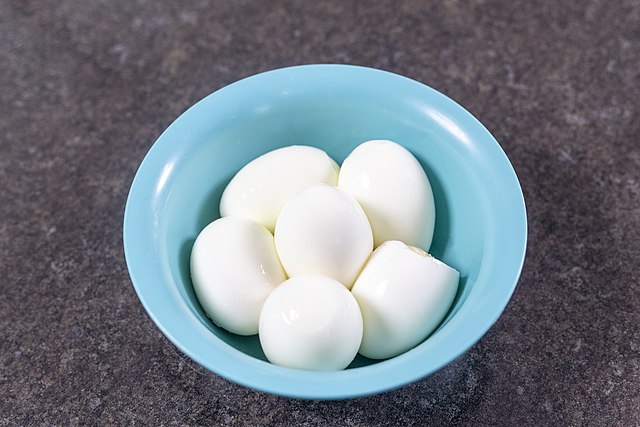In their new paper, researchers led by Pellegrino Musto, a scientist working at Italy’s National Research Council in Pozzuoli, first simulated the egg-cooking process using computational fluid dynamics (CFD).
CFD is the science of using computers to predict how liquids and gases flow based on the physical laws governing them, such as conservation of mass, momentum and energy.
The simulations suggested a new method – one likely to be entirely unfamiliar to most chefs and amateur cooks – that might give superior results. The approach, which the authors call periodic cooking, involves alternating between cooking the egg in a pan of boiling water kept at 100C (212F), and placing it into a luke-warm bowl kept at 30C (86F). To get the best results, the egg must be transferred between the two temperatures every two minutes for a total duration of 32 minutes, so it is probably not best suited to home cooks who like to dip in and out of the kitchen leaving their egg unsupervised.
If you are willing to put in the effort, however, your rewards will be plentiful. When scientists tried the new method in real life, the resulting egg was exceptional. The researchers confirmed this superiority by analysing the texture, sensory qualities and chemical structure of their perfectly boiled egg using Nuclear Magnetic Resonance and High-Resolution Mass Spectrometry.
The results showed that periodically cooked eggs had a soft yolk similar to that of a sous vide egg – so far so good. However, unlike eggs cooked sous vide, the white albumen was not runny and uncooked, but instead had a consistency closer to that of a traditionally soft-boiled egg. According to the paper’s authors, this is probably because, while temperatures in the periodically cooked egg white ranged between 35C (95F) and 100C (212F) during cooking, the yolk remained at a consistent temperature of 67C (153F) throughout.
Perhaps most interestingly, chemical analysis revealed that the yolk of periodically cooked eggs contained more polyphenols – a group of micronutrients mostly found in plants, and touted for their health benefits – than eggs cooked by other methods. This class of compounds is renowned for its antioxidant and anti-inflammatory properties. Plants make them as a defence against stressful environmental conditions such as UV radiation, droughts or predation by insects. However, research increasingly shows they can benefit humans too. For example epidemiological studies suggest that high dietary intake of polyphenols is associated with decreased risk of cardiovascular disease, specific forms of cancer and neurodegenerative diseases.
Even more reason to try periodically cooked eggs next time you fancy dippy eggs and soldiers for breakfast.
BY BBC.


